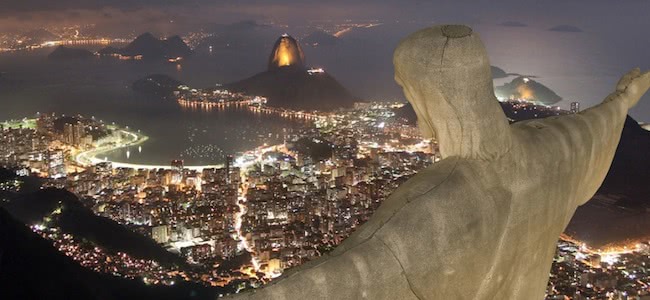“We go to Rio….” Sang Peter Allen and more recently Hugh Jackman The Boy From Oz. It’s hard not to sing that song as you explore the streets of the Brazilian city. It may not be as big as Sao Paulo or the political centre like Brasilia, but it is the culture capital of the biggest country in South America.
The rich and the poor may only live metres away from each other with favelas (slums) juxtaposing high rises, but the music of Rio intertwines and intersects. While the locals who live in favelas have taken a hold of the remix revolution and created their own music culture which fuses funk music, choral music with rap and north eastern dance music with punk.
But tourists are unlikely to witness the music of Rio’s favela area. What they will experience though is a music scene that has grown considerably over the years. While all styles of Brazilian music have emanated from the city since the 1930s, it has become increasingly more diverse in the past twenty years.
While the digital evolution is always a result of such diversification, the rise of Lapa’s notoriety has helped Rio’s music scene and nightlife grow considerably. While before the 90s the area was known for prostitution more than anything, restaurants, nightclubs and music venues have since opened and therefore promoted local samba and choro acts to tourists.
With the rising number of nightclubs opening not just in Lapa, but also around the city, Rio’s electronic music scene has obviously grown considerably. International DJs and live electronic acts are only encouraging the local scene even more.
The beautiful beaches of Copacabana and the famed nightlife of Lapa have seen an influx, not only in tourists but also from musicians around the world. International visitors have spurned an experimentation of Brazil’s more traditional style of music.
Bosse nova has been mixed with hip-hop, while samba has been incorporated into the music that is being crafted in the city’s favelas.
Clearly Brazilian music is unlike anything tourists are likely to hear from more popular travel destinations such as Europe. While Rio is arguably the biggest tourist haven of South America, the fact that the musicians of not only the city, but the country have cultivated such innovative music styles instead of pandering to over-explored western styles is incredible.
Rio’s reputation for crime isn’t one to be ignored, but nor should it be a deterrent for potential visitors. The usual safety measures should keep tourists in good stead for their visit to the city.
However, make sure you brush up on your Portugese before you go and then you should be set to experience this music mecca.
Rio de Janeiro Festivals/Conferences
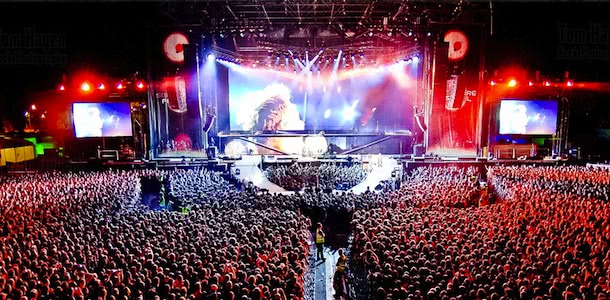
Rock In Rio, http://www.rockinrio.com
While originating in Brazil, this festival has since expanded internationally to Lisbon in Portugal and Madrid in Spain, while a Buenos Aires event is also being planned for 2014. Rock In Rio has been held four times since 1985, while the fifth event will be held in September 2013. In the past the Rio event has drawn crowds of more than 1.5 million people. Rock In Rio 5 will be held over seven days with a gigantic lineup including the likes of Bruce Springsteen, Beyonce, Justin Timberlake, Metallica, Muse, Iron Maiden and many more acts.
Rio Music Conference, https://www.facebook.com/riomusicconference
Five years since its inception, RMC has become the largest electronic music and entertainment in the Southern Hemisphere. In 2013 acts such as DJs Tiësto, Fatboy Slim, Richie Hawtin, Bob Sinclar and Erick Morillo headlined over five nights. While there are also workshops, panels and networking for the business side of the electronic music industry.
Chemical Music Festival, http://www.chemicalmusic.com.br
This electronic music festival has run over one night annually since 2005, with DJs and live bands performing over three stages. In 2007 the festival became the largest of it’s kind to tour Brazil, the Rio event is held in November at Leopoldina Station. Inspired by similar European events, what sets Chemical Music Festival apart from it’s international counterparts is its support of local artists.
Rio de Janeiro Record Stores
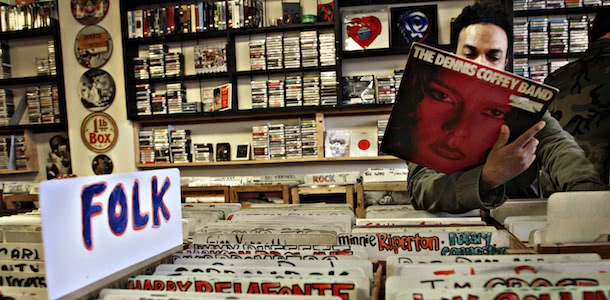
Plano B Lapa, Rua Francisco Muratori 2a, http://planob.net
Want to flip through some vinyl, while your friend gets a tattoo out the back? Plano B allows for such an experience with its collection of jazz and electronic LPs and tattoo service. There is also a selection of CDs for sale, but this store is more famous for it’s free live sessions of artists and DJs that perform on weekend nights.
Baratos da Ribeiro, Rua Barata Ribeiro n. 354, http://www.baratosdaribeiro.com.br/
With over 20,000 books, 7,000 LPs and numerous comics, this establishment has a huge offering of literature and music. Their selection of vinyl focuses on rock, jazz, bossa nova, soul and old school tropical samba. Situated in Copacabana (that’s close to the beach!), this store also offers to buy used records and books as well.
Empório Musical, Rua Sete de Setembro Centro,
With a less than desirable CD selection, this record store ensures that vinyl enthusiasts are well catered for. There are bins and walls full of LPs to search through. Empório Musical specializes specifically in Brazilian music, such as Música Popular Brasileira (MPB), classic samba and funk. This record store is only for those willing to search though, so be prepared to take your time.
Rio de Janeiro Music Venues
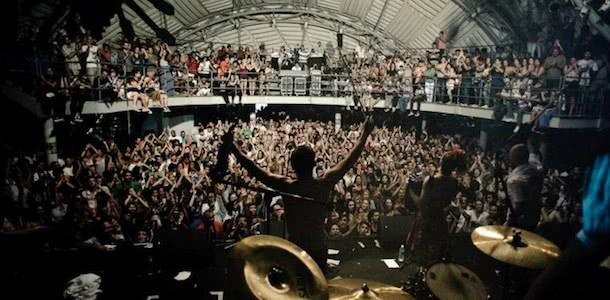
Circo Voador, Rua dos Arcos Lapa, http://www.circovoador.com.br/
Meaning ‘flying circus’ in English, this concert hall has provided live performances for over 30 years now, with international and local artists coming to play at one of Lapa’s most famous gig spaces. The curvilinear shaped venue has hosted acts such as The National, Primal Scream, Hot Chip, Two Door Cinema Club and Alabama Shakes just to name a few.
Parada da Lapa, Rua dos Arcos 10 Lapa, www.paradadalapa.com.br
This multi-level bar and music venue acts not only as a place to catch local artists, but also as a pretty great viewpoint of Lapa’s famous arches. Once your done taking photos from the open-air terrace, Parada da Lapa is home to an eclectic variety of musicians. With music such as live samba, MPB, jazz, rock and cabaret performances, this venue provides a spectacular setting in which to experience Brazilian music.
Casarao Ameno Reseda, Rua Bento Lisboa 4, http://casaraoamenoreseda.com.br
While the nightlife atmosphere of Lapa is something that all tourists should experience at least once, the area’s popularity amongst locals and international visitors ensures that some might want to retreat to a place a little less congested. Casarao Ameno Reseda is that place. This music venue, which is situated not too far from Lapa, hosts music from Brazilian genres such as gafieira, samba, chorinho, bossa nova, MPB and forro. This establishment is open everyday except Wednesdays and offers dance lessons before shows, just in case you wanted to brush up on your skills.
Rio de Janeiro Acts You Should Check Out
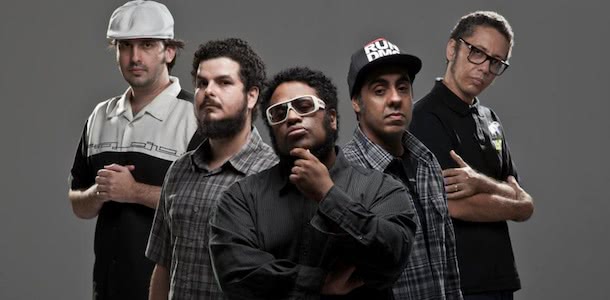
BNegão & Seletores de Frequência – Soundcloud
While this six-piece play what they describe as ‘Universal Music Negra’, the group intertwine jazz and Rastafarian textures to create a tropical sound. The band played SXSW in 2013, check out their track ‘Alteração (Éa!)’ below.
Roge – Soundcloud
Performing a mix of styles favoured by his compatriots, this singer-songwriter moves from samba to bosse nova to reggae. His skill and folk charm have made the musician a popular proposition in his country. Having released four solo works, Roge also worked on the theme for the 2016 Olympic games with Aside Arlindo Cruz.
Los Hermanos – Soundcloud
Even though this four-piece hails from Brazil, their name is Spanish for ‘the brothers’. Los Hermanos have released four highly regarded rock albums since their formation in 1997 and while the band are currently on hiatus, the Rio locals are worth checking out to see just what Brazilian rock sounds like.

































